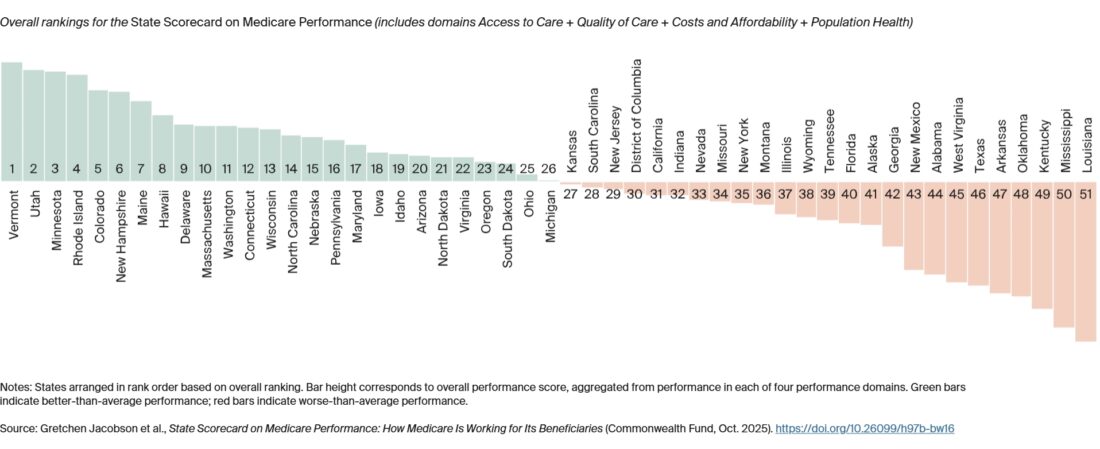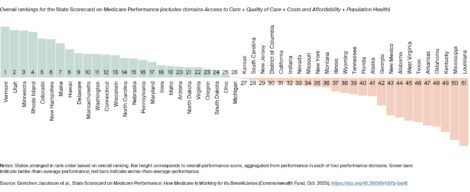Middle of the pack
Michigan ranked 26th in Medicare performance

Graphic courtesy of Commonwealth Fund
LANSING — Michigan ranked 26th among all states and the District of Columbia in its overall Medicare system performance, according to a new report from the Commonwealth Fund.
The scorecard combined a number of factors into these rankings — and Michigan’s performance varied across them. Michigan ranked at 13th in access to care, but fell into the third quartile in the other categories — 37th in quality of care, 30th in costs and affordability and 32nd in population health.
Vermont, Utah, and Minnesota received the highest scores overall, while Louisiana, Mississippi, and Kentucky ranked lowest. The report shows that Michigan stands out regionally in certain metrics — in the Great Lakes region, Michigan had the lowest number of potentially avoidable emergency department visits age 65 and older, as well as the lowest share of older adults reporting loneliness or lack of emotional support.
Also in the Great Lakes region, Michigan was particularly affordable for drug costs in the Part D program for Medicare recipients, with the lowest average out-of-pocket spending and lowest total share of drug costs paid by individual beneficiaries.
However, Michigan struggled in other areas. In multiple categories of “quality of care,” including hospital admissions for ambulatory care-sensitive conditions and 30-day hospital readmissions, Michigan ranked 48th and 46th, respectively
22.4% of Michiganders are enrolled in some kind of Medicare plan, among the highest in the nation — and over half of those are on a Medicare Advantage plan, a private alternative to Original Medicare that can come with more limitations on doctor and hospital choice but can also come with additional care benefits. Behind Maine, that is the highest percentage of the population on a Medicare Advantage plan, nearly 14%.
“Medicare is a lifeline for millions of Americans, and for the first time this scorecard shows how people’s experiences with the program vary widely depending on where they live,” wrote Gretchen Jacobson, the Commonwealth Fund’s Vice President for Medicare, in a press release accompanying the scorecard. “In some states, beneficiaries can see doctors quickly and afford their prescriptions; in others, they face higher costs, delays, or red tape. By learning from states where Medicare works best, policymakers and health leaders can strengthen the program for everyone.”






